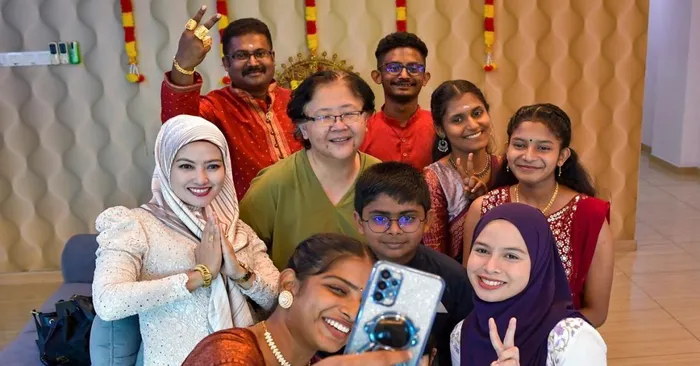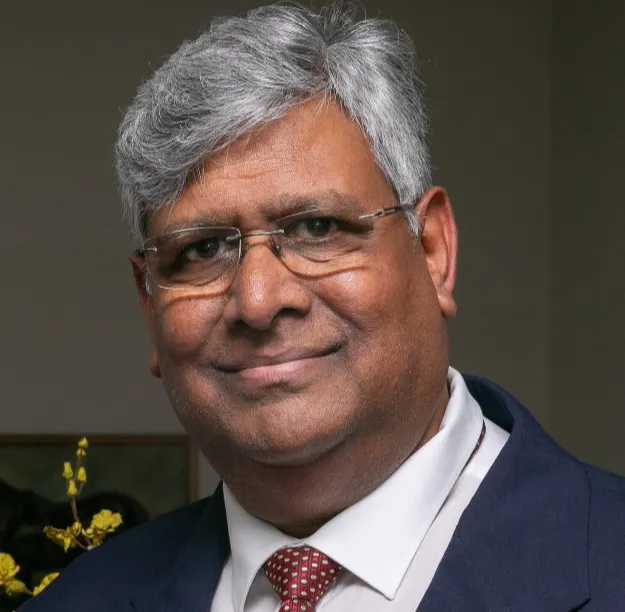
The Ramayana, and by extension Diwali, must be opened to all cultures, says the writer.
Image: Bernama
WE ALL know the classic children’s story of Goldilocks and The Bears.
Coming from a rich, privileged family that lived near the edge of a forest – here think Simbithi Eco Estate, Ballito - Goldilocks wasn’t simply curious. She was audaciously presumptuous.
A child of comfort, she wandered into a stranger’s home, not with caution, but with the confidence of someone who believed the world owed her warmth, softness, and satisfaction. Much like our new elite, positioned at the complex intersection of aspiration, historical exclusion, post-apartheid economic dynamics and ill-gotten wealth.
The spoilt brat’s golden locks parallels the dyed blond hair of celebrities and influencers to signal transformation, allure, or status to reinforce snobbish ideals. Let’s not forget the luxury consumption of Dom Pérignon champagne, Lamborghinis, designer fashion and VIP lounges.
Now back to the fairytale. Goldilocks didn’t knock. She didn’t hesitate. She sampled porridge, chairs, and beds belonging to Papa Bear, Mama Bear and Baby Bear as if the universe were her personal showroom. Her behaviour wasn’t innocent exploration - it was gross entitlement. She rejected anything too hot, too cold, too hard, or too soft, demanding perfection tailored to her whims.
She didn’t ask permission, nor did she consider consequence. Goldilocks thrived on the assumption that her preferences mattered more than the privacy or property of others.
Now why does this anti-social behaviour remind me of the former South African Minister of Defence, Nosiviwe Mapisa-Nqakula, who did not lift even one finger - carefully manicured with French tips - during the Phoenix Massacre of July 2021? Little wonder then that she is currently facing serious corruption charges of soliciting a R4.55 million bribe and a wig – yes, a hairpiece - from a defence contractor.
When we see “The End” in whimsical, vintage-inspired font, what is the message of the Goldilocks story? The heroine of the fable becomes a cautionary symbol of unchecked privilege: the kind that assumes access, disrespects boundaries, consumes without gratitude, and flees when accountability knocks.
The tale teaches children about respecting others' property and privacy - it's wrong to enter someone's home and use their belongings without permission. For older audiences, the takeaway or insight from the fable is the concept of finding the "just right" balance between extremes.
Just like The Brothers Grimm - Jacob and Wilhelm – wrote stories like Little Red Riding Hood, Hansel and Gretel and Snow White which promote moral rectitude, Sage Valmiki wrote the Ramayana - a foundational epic of Hindu literature which comprises 500 chapters - many centuries ago.
While the Ramayana recounts the adventures of Lord Rama, his exile, and his quest to rescue his wife Sita from the demon king Ravana, the story has many values-based themes. Some views suggest the Ramayana is a historical event, although it is widely considered a mythological and literary narrative with philosophical, virtuous and cultural lessons. The story functions as a guide for living, teaching about good deeds, kindness, and following the right path. The Ramayana has deeply shaped Indian thought and literature, serving as a medium for conveying profound philosophical ideas and honourable values across generations.
The story of the Ramayana is intended to uplift, educate, and unify, and is deeply connected to Diwali. which celebrates Lord Rama's victory over Ravana.
I hold the view that it is time - especially in South Africa - that the Ramayana, and by extension Diwali, must be opened to all cultures. Let’s make the circle bigger. I think Lord Rama would have welcomed the multicultural spirit of Diwali with grace and joy.
More than commemorating Lord Rama’s return to Ayodhya after 14 years of exile and triumph over Ravana, Diwali must transform into a catalyst for restoring harmony, honouring relationships, and uplifting communities. Across India and beyond, Diwali has evolved into a celebration that transcends caste, creed, and geography.
Whether celebrated by Hindus, Sikhs, Jains, Buddhists, or people of other faiths and cultures, the festival’s core message remains: the victory of light over ignorance, hope over despair, and unity over division. Who in the right mind can counter the need for good to prevail over evil? So why not make Diwali a national festival?
Imagine on Diwali evening Lord Rama walking through the streets of Durban – or Delhi, Dubai, Dar es Salaam, Dallas or Denmark – and seeing homes of every background lit with clay lamps and LED rope lights. He would regard this not as weakening but amplification of Diwali, with each culture adding its own dimensions to the celebration of a living legacy of shared light.
Interracial harmony in South Africa today is a complex and evolving tapestry - woven with both hopeful threads and persistent knots. While the country proudly wears the title of the "Rainbow Nation" where every hue of heritage is supposed to enjoy dignity under one sky, the lived reality is more fractured and more raw.
Today, Desmond Tutu’s rainbow appears faded. Racism, both overt and systemic, continues to shape access to land, education, and opportunity. Hatred simmers in whispered slurs and online vitriol. Suspicion creeps into daily interactions, fuelled by historical wounds that remain unhealed.
For generations, Diwali has been a sacred observance for South Africans of Indian descent, marking the triumph of good over evil, knowledge over ignorance, and hope over despair.
But now is a time to replace exclusivity with inclusivity. Let Diwali 2025 be more than a Festival of Lights observed only by Hindus. It must be a call to unity, a celebration of shared resilience, and a mirror reflecting the soul of a nation that has weathered darkness and dared to shine.
Let every diya lit in a Zulu homestead, Hindu temple, or urban township be a tribute to that spirit. Let every shared sweet, every song in another tongue, be a verse in the Ramayana of our times, exhorting Indians to celebrate indenture with Ubuntu, “I am because we are”.
To embrace Diwali as a multicultural celebration is not to dilute its meaning but to deepen it. When Zulu dancers move to tabla beats, when isiXhosa poets recite verses alongside Sanskrit chants, when samoosas are shared with chakalaka, and when elders from all backgrounds light candles together, we do more than share a stage - we commemorate hope, justice, and renewal, all values that resonate deeply with South Africa’s journey.
Let the significance of Diwali be taught in all our schools, embraced in our workplaces, and honoured in our public squares, not as a borrowed ritual, but as a South African treasure with Indian roots.
It is okay to honour the Diwali rituals - the prayers, the lamps, the stories within stories from the Ramayan – but let’s also make the circle bigger. Let Diwali be a bridge, not a boundary. Diwali must no longer just a private affair behind temple doors or family gates. It must be a national opportunity for shared meaning and a celebration of unity.
Let it be a moment when South Africans of every heritage pause to reflect, rejoice, and recommit. In the end, Diwali is not just about where it came from. It’s about where it can go. And in South Africa, it can go far - illuminating hearts across cultures, generations, and histories.
To our beloved Diwali purists, I am not asking you to give up your rituals, your recipes, or your rangoli. I am asking you to make a little room for new voices, new flavours and new sparks of joy. Diwali must not become something else. I ask for it to become more - more visible, more inclusive, more healing. Let the younger generation see Diwali not as a relic, but as a living flame.
Rather than giving the black domestic worker leftover sweetmeats one week after Diwali (I know of many homes where this is done), why not cook a pot of chicken biryani for her to take home on Diwali day - with some fireworks for her children, and that too, after giving her the afternoon off.
The rule which states “Bhajans Only, Bollywood Optional, Beyoncé Never’ must be discarded. The Diwali Spotify playlist must move from Om Jai Jagdish to Brenda Fassie’s Vul’indlela. Diwali is about joy - and joy has many rhythms.
When we light a lamp together, we do more than illuminate a room - we illuminate each other. In the end, the light we share is the light that saves us.
Happy Diwali, South Africa. May we always walk in the light - together.

Yogin Devan
Image: File
Yogin Devan is a media consultant and social commentator. Reach him on: [email protected]
** The views expressed do not necessarily reflect the views of IOL or Independent Media.